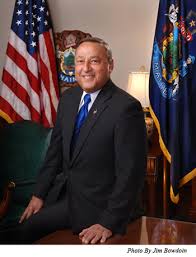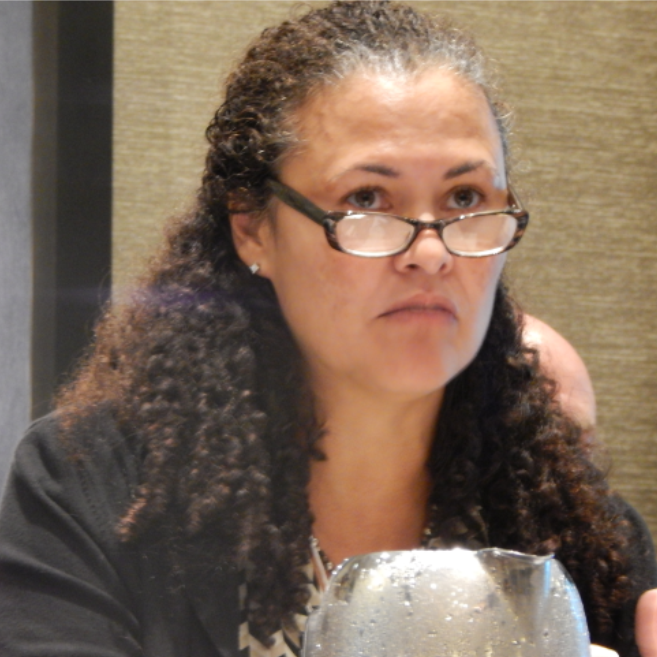Regulators Call Halt to Eversource Work Site Closure
The Public Utilities Regulatory Authority has ordered Eversource Energy to delay the proposed closure of a regional district office in Simsbury until it could assess the effect of a previous round of closures of district work centers throughout the state.
Eversource sought the closures as a move to consolidate its state footprint and lower operating costs. Attorney General George Jepsen and Consumer Counsel Elin Swanson Katz argued that the closure of the Simsbury work center could slow Eversource’s response to power outages in the Farmington Valley during major storms.
PURA noted that Simsbury is largely isolated from major highways. Regulators approved the closure of three other centers. Altogether, 400 workers will be moved to other work sites.
More: Hartford Courant (registration required)
ILLINOIS
Regulators OK WEC-Integrys Deal with Conditions

The ICC will require Peoples Gas to file reports by September committing itself to the scope, schedule and cost for a gas-main replacement project that has been the target of much criticism. The project’s cost, initially estimated to be about $2 billion, has more than doubled.
The ICC approval is the final regulatory hurdle required for the merger, which expands WEC’s reach from Wisconsin to Illinois, Minnesota and Michigan.
More: Journal Sentinel
INDIANA
Is the State Headed for a Competitive Energy Market?

Indiana Industrial Energy Consumers argues that the state’s energy prices have gone from being the nation’s fifth-lowest in 2003 to 26th lowest in 2014. Meanwhile, neighboring states Illinois and Ohio, which once had higher average industrial electricity rates, now have lower rates.
The consortium plans to lobby lawmakers this summer to expand opportunities for co-generation plants at the industrial facilities. The companies also are discussing a broader reform that could increase market competition for industrial and residential customers.
More: The Times of Northwest Indiana
KENTUCKY
Kentucky Power Wins Rate Increase

The agreement allows the utility to increase its annual revenue by $45.4 million, about 57% of the company’s initial rate request. Kentucky Power also agreed to drop its appeal of an earlier PSC decision disallowing certain fuel costs, which represents a savings to customers of about $54 million.
Other provisions include imposition of a 15-cent customer monthly charge to be matched by company shareholders that is expected to generate about $300,000 per year to support economic development in the company’s service area. Kentucky Power, a subsidiary of American Electric Power, has about 173,000 customers.
More: WYMT TV
MAINE
Bill Provides Wind Power Opt-out
The Legislature has passed a bill that would give residents who are not represented by local governments an opportunity to exclude their communities from areas considered for large wind power projects.
The bill would give residents of the Unorganized Territory the right to petition the Land Use Planning Commission to pull out of the expedited wind permitting area, a region designated in the 2007 Wind Energy Act. Under the law, organized municipalities can pass ordinances to control wind power projects, but residents in areas without organized government cannot.
The Unorganized Territory — the part of the state that has no incorporated municipal government — covers slightly more than half the state’s area, including much of the interior and some coastal islands.
More: Portland Press Herald
Legislature Overrides Veto of Energy Efficiency Bill

The Legislature unanimously overrode Gov. Paul LePage’s veto of a bill that corrects a one-word clerical error potentially worth nearly $38 million for an energy efficiency program.
The bill reinserts what has become known as the missing “and” in a law that funds the Efficiency Maine program. It was made necessary in 2013 when the Legislature passed a massive energy bill that authorized a surcharge on electricity ratepayers but left out the critical conjunction. The Public Utilities Commission voted in March to interpret the language literally, meaning program funding would be capped at $22 million rather than the $59 million envisioned by the Legislature.
LePage, who opposes the ratepayer surcharge, vetoed the corrective measure. State law requires a two-thirds majority in both houses of the Legislature to override a veto.
More: Portland Press Herald
MARYLAND
Residents Concede in Pepco Tree Management Dispute
A group of Potomac homeowners who banded together to try to keep Pepco from cutting down trees on private property near its power lines has conceded defeat. Armed off-duty Montgomery County police officers began standing guard last week to keep protesters from interfering with Pepco contractors cutting down trees on residents’ property.
Pepco stepped up its vegetation management program after the Public Service Commission in 2011 fined the utility for poor performance. A PSC working group developed standards dictating how close a tree’s branches can grow to different types of power lines and said that no jurisdiction in the state could override the standards.
The utility says it’s within its rights to bring its bucket trucks and chainsaws onto people’s property because of a series of easements it purchased in the 1950s, before modern neighborhoods were built in the area. Pepco says it has decreased the number of outages per customer an average of 8.6% and that their duration has been shortened by nearly 24%.
More: Bethesda Magazine
PSC Member Accused of Conflict of Interest in Merger Vote

Opponents of Exelon’s $6.8 billion acquisition of Pepco Holdings Inc. have appealed the Public Service Commission’s approval of the deal, saying a commissioner who cast the deciding vote had a conflict of interest.
Commissioner Kelly Speakes-Backman was in talks to take an executive position with the industry group Alliance to Save Energy when the PSC voted on the merger on May 15. (See How Exelon Won Over Maryland.) Exelon is on the board of directors for the group, which lobbies Congress on energy efficiency issues.
“Speakes-Backman’s failure to recuse herself from voting on the Exelon-Pepco merger while negotiating employment with an organization tied to and financed by Exelon Corp. constitutes a clear conflict of interest,” said Tyson Slocum of advocacy group Public Citizen. Speakes-Backman, who became a senior vice president with the trade group after the vote, denied there was a conflict, saying she ceased communication with the group when she learned of Exelon’s place on the board until after the commission’s decision.
The Maryland Office of People’s Counsel has appealed the commission’s decision in circuit court. The D.C. Public Service Commission is the only remaining regulatory body still to vote on the deal, which has attracted vociferous opposition in the district.
More: WUSA-9; The Baltimore Sun
MICHIGAN
Death of Vet After Utility Shutoff Prompts Discussion on Rules

John Skelley, 69, was found dead in a Detroit home in February after Consumers Energy shut off natural gas service. Utilities are forbidden from shutting off utilities in the homes of seniors from November to March, but Consumers Energy said it was unaware anybody was living in the house. The service was listed under a different name, and the company said it sent numerous shutoff notices to the service holder with no response.
The Public Service Commission is calling for a full report from Consumers Energy and is asking all utilities in Michigan to form a “collaborative work group” to review current rules and see if any changes need to be made.
More: Detroit Free Press
MINNESOTA
PUC Signs off on Solar Garden Size Agreement
The Public Utilities Commission approved a settlement between Xcel Energy and several community solar garden developers that will allow more of the small-scale solar projects to be built.
Xcel had pushed for a limit to the size of community-owned solar facilities, which they saw as cutting into their business without paying to support grid development and maintenance. Some community solar facilities as large as 50 MW were proposed, “well beyond what was intended,” Xcel Regional Vice President Laura McCarten said.
The agreement limits the size of a community solar facility to 5 MW. The agreement is retroactive, and all facilities will go back for a design review to ensure they don’t exceed that size.
More: Minnesota Public Radio
MISSOURI
Clean Line Taps Kansas City Contractor for Tx Project While Awaiting Regulatory OK

The planned 750-mile HVDC line would carry wind power from Kansas into Missouri and further east.
Indiana and Kansas regulators have already approved the project.
More: KCUR
Empire District Gets 29% Less in Rate Case

Empire sought the increase mainly to cover the costs of installing emission controls at its Asbury Power Plant. Empire also said it needed to pay for a new maintenance contract for its 12-unit Riverton gas-fired plant and faces higher RTO charges.
Empire serves 149,300 electric customers in 16 Missouri counties.
More: Missouri Public Service Commission
NEW HAMPSHIRE
PUC Approves Temporary Eversource Rate Hike
State regulators approved a temporary increase of 0.07 cents/kWh for customers of Eversource Energy to pay for reliability projects. The commission first approved the reliability enhancement program in 2006 to reduce the frequency and duration of power outages. The current funding was set to expire at the end of June.
On June 10, Eversource asked the Public Utilities Commission to approve the temporary rate increase to recoup money spent on reliability projects since 2013. According to the company, since the start of the reliability program, there has been a steady decline in the duration and frequency of outages affecting customers.
More: New Hampshire Union Leader
NEW JERSEY
Fishermen’s Energy Takes Case to State Supreme Court

The company asked the state Supreme Court to direct the BPU to approve the project, which received a $46.7 million grant from the Obama administration. The BPU rejected the project because it said it was too costly, even with federal subsidies.
More: The Sandpaper; NJ Spotlight
NEW YORK
Half of State’s Power to Come from Renewable Sources by 2030
The New York State Energy Research and Development Authority has approved a new state energy plan that aims to reduce carbon emissions by 40% from 1990 levels in the next 15 years and calls for the state to get half of its power from renewable sources by 2030.
The long-awaited plan, released Thursday, aligns with the Cuomo administration’s Reforming Energy Vision initiative to remake the energy grid and provide more renewables and energy efficiency.
“The eyes of the country really are on New York, and where we are going and how we are going to get there,” NYSERDA Director John Williams said.
More: Capital New York
National Grid Submitting Smart Grid Plans
National Grid will submit its plans for a smart grid demonstration project for the Clifton Park area on July 1.
The project will be based on one currently operating around Worcester, Mass., where customers can choose different pricing models for their electrical usage and can access advanced smart grid technologies to help them control their usage.
National Grid also introduced a new team that will lead the company’s various smart grid demonstration projects. The team will be led by Ed White, vice president of new energy solutions.
More: Times Union
NORTH CAROLINA
Lower Fuel Prices Lead to Savings for Duke Energy Progress Customers
Duke Energy Progress has proposed a rate reduction that would cut the monthly energy bill for a typical residential customer by 2.5%.
The new rate, if approved by the Utilities Commission, would reduce the average residential monthly bill from $111.38 to $108.69. The decrease is a result of the falling prices of coal and natural gas as well as in the cost to ship coal to the state by train and barge.
More: The News & Observer
NORTH DAKOTA
PSC Approves 2 Pipelines to Run Beneath Lake Sakakawea

The first is a 25-mile oil pipeline to run from a Hess facility near Keene in McKenzie County to the Ramberg Truck Facility near Tioga. It would carry about 76,000 barrels of oil per day. The second, called the Hawkeye NGL Pipeline, would run along a similar route for about 19.2 miles, using an existing oil pipeline that would be converted to carry natural gas liquids. It would carry about 30,000 barrels of NGLs a day.
Hess is one of the largest oil producers in North Dakota.
More: Bismarck Tribune
SOUTH DAKOTA
PUC to Hold Public Hearing Before Crucial Keystone Decision
The Public Utilities Commission will hold a final public hearing on July 6 at the state Capitol to get input on the Keystone XL Pipeline. Although the project received initial approval back in 2010, the PUC must rule on whether or not conditions have changed substantially before construction can be approved.
More: KDLT


